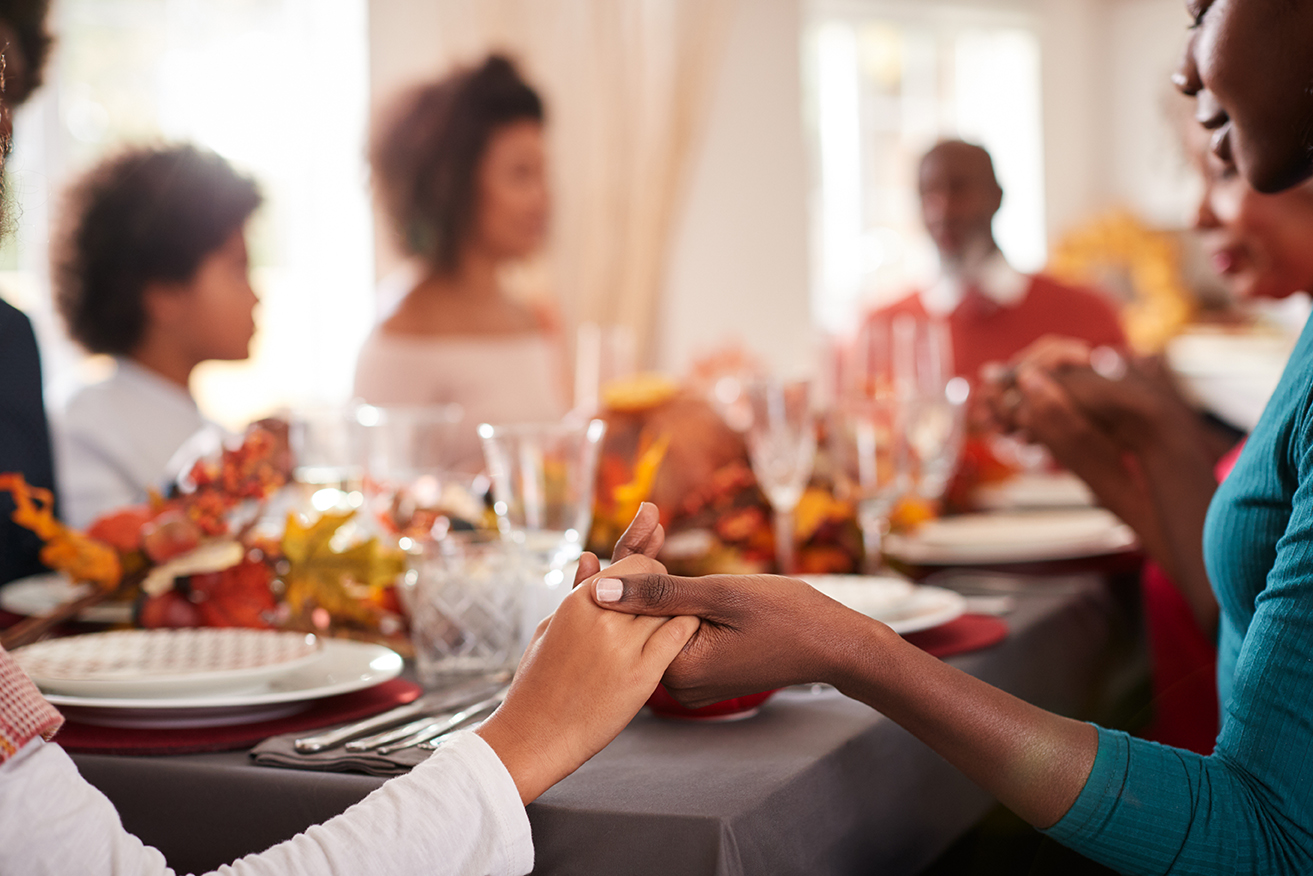The holiday season is filled with multiple activities bringing with it a multitude of emotions. The highs and lows can be difficult to balance during the best of times, however, for those experiencing the loss of a loved one balancing grief and gratitude seems like an impossible task. The grieving process is unique to the individual and tied to the emotional and traumatic nature of the loss. The holiday season places additional challenges on those experiencing grief whether the grief is still raw, or many years have passed. The process is like mixing oil and vinegar. They are two separate and distinct fluids that only mix when shaken, and then quickly separate to their individual parts when left alone. Emotions can feel the same way during the holiday season when experiencing moments of hope and loss simultaneously or as separate parts. Finding balance in the extremes can help navigate the season successfully.
The practice of gratitude has many benefits and requires discipline to purposely focus on positivity vs negativity, especially when navigating grief. Physiologically it calms the racing heart and decreases breathing rates helping the body recalibrate when overwhelming negative emotions are triggered. Practicing gratitude can start by ending the day purposefully taking note of one good thing that happened. Gratitude can have positive effects on the mind by increasing the production of hormones that calm the mind, decreasing symptoms of depression and anxiety while increasing a sense of well-being. Celebrate and mentally savor positive memories that pop up in your social media feed during the holiday season to stimulate these powerful hormones and fill your gratitude cup. Spiritually, gratitude enhances meaning and purpose as you connect to loved ones. Allow family and friends to help navigate grieving what is lost and embrace the present to find hope in the future. Grief is often described as love expressed in sorrow. Love is a powerful emotion that allows space to move between the past and the future.
Life is different after losing a loved one. The grief process is not a recovery process but learning to live life differently. The pain ebbs and flows like the ocean tides which often get rougher during the holiday season. Traditions feel familiar and comforting while at the same time stirring deep sorrow. Navigating these emotional shifts is exhausting both mentally and physically. Coping skills are strategies to provide order in chaos to enhance hope. Coping strategies provide options to navigate the challenges brought on by the holiday season.
- Deep diaphragmatic breathing exercises calm anxiety. Memories of loved ones, even happy memories, can trigger anxiety, especially during the holidays. When feelings of anxiety are triggered, focus on the cleansing results of deep inhalation and slow exhalation. Practice in private helps with application in public settings.
- Mindfulness is a way of life and keeps us living in the moment, while grief keeps pulling us to the past. Taking time to feel the sun on your face, the first cold blasts of winter, or taking in the beauty of the sunrise can shift the grieving heart to the present, creating balance and momentary peace. Practice mindfulness today by focusing on one of your senses to draw you pleasantly back to the present.
- A gratitude journal is another way to develop a grateful mindset. If writing is not your thing, try jotting down the top 3 things you are grateful for on your calendar. Keep in mind that gratitude does not replace grief but helps provide balance to the grieving process.
- Take time to consider holiday boundaries. Grief can shift without warning triggering overwhelm. Plan an exit strategy to provide space when feelings of being overwhelmed strike. Communicate the plan with a trusted family member to help provide a sense of peace.
- Prioritize and plan self-care activities to provide the space to rebound during the holiday season. This can be as simple as keeping the calendar clear after Thanksgiving or planning a family outing to create new holiday memories. Whatever feels right is the right choice and requires no justification. A family discussion can provide guidance to make the right choice.
- When navigating the grieving process, keeping up with the calendar can be mentally exhausting. Taking time to write down the activities takes the pressure off and allows for family discussions to prioritize what is important and what can be skipped this year.
There will be times when no amount of distraction, positivity, or gratitude will take away the sadness of loss. Choosing life in the present is especially hard during the holiday season. We have little power to change our circumstances, but we do have the power to choose how we respond. Space, grace, and love lead to gratitude and help in navigating the complexities of grieving.

